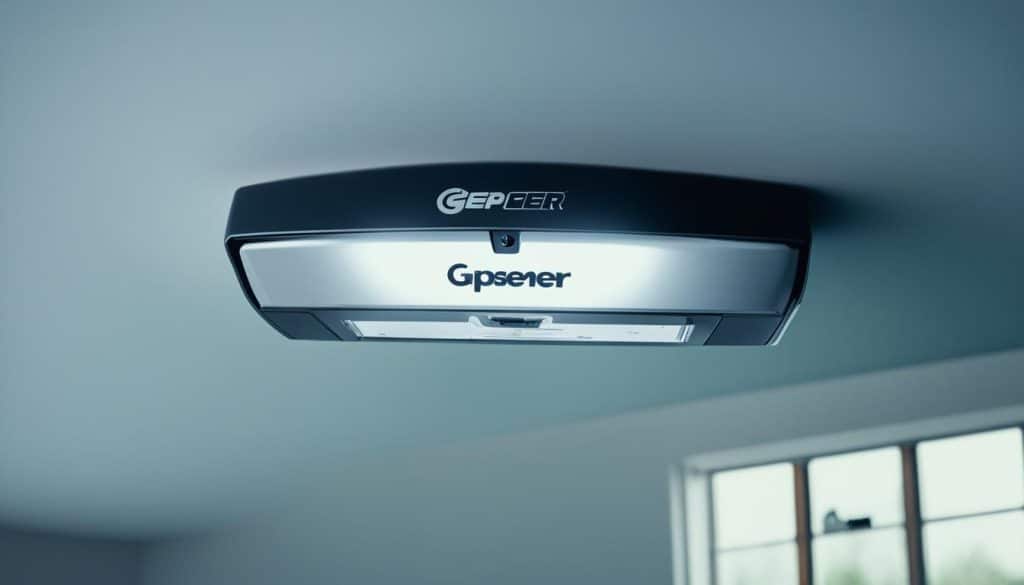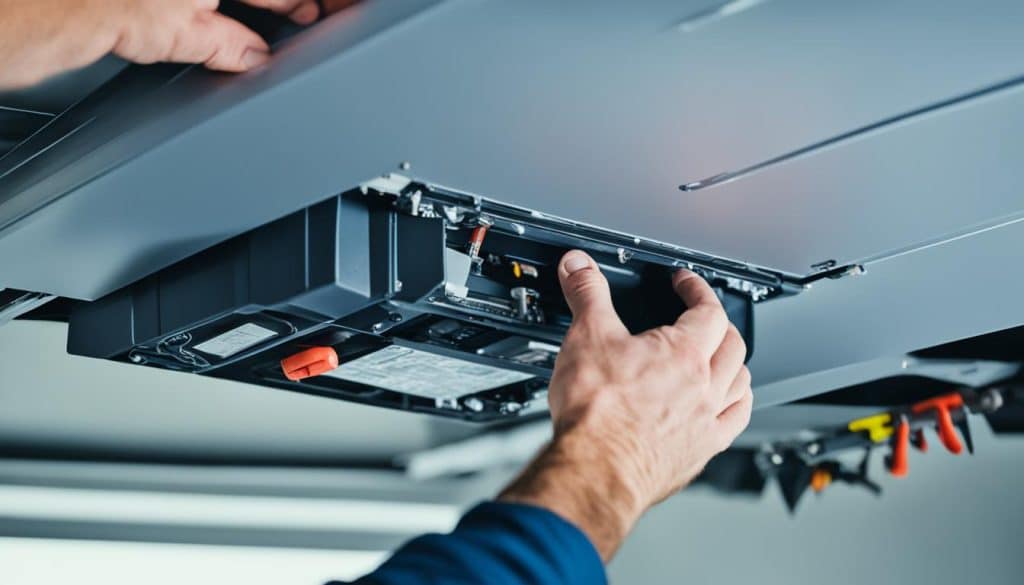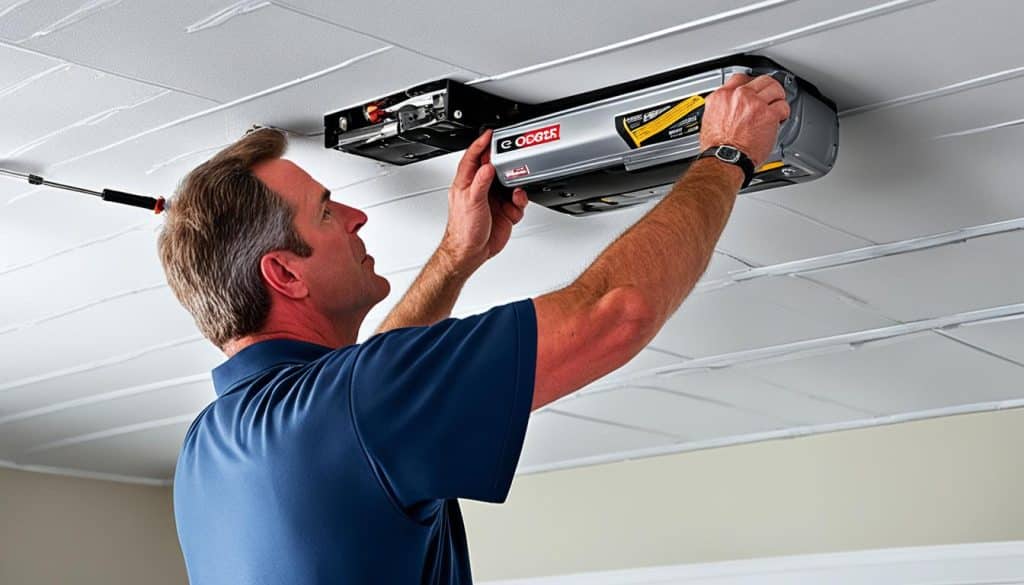Orlando Garage Door Services
1(407) 788-1229
Volusia Garage Door Services
1(386) 236-9100
1(407) 788-1229
1(386) 236-9100
Wondering how long a garage door opener really sticks around? Most folks guess between five and fifteen years, and that’s not a bad ballpark. But for anyone who owns a garage, it’s a number worth pinning down. At Emerald Garage Door Services, we’re all about helping you pencil opener maintenance into your to-do list—whether that’s just a quick tune-up, a battery swap, or a full replacement. Here’s the scoop on the behind-the-scenes work that keeps your opener chugging along and the little things you can do to extend its life.

Several key factors play a role in how long your garage door opener will last. The brand you buy, the installation age, how often you open the door, weather extremes, and any damage it suffers all make a difference in lifespan.
Choosing a strong brand upfront pays off later. Established brands often build openers tested for long life. When buying a new opener, stick with names you see getting good reviews in garage equipment guides.
The age of the garage door opener matters, too. Older models may be less energy-efficient and lack the safety features of the latest models. Parts in vintage openers also gradually weaken, limiting the overall lifespan of the entire unit.
Well-maintained openers live longer. Schedule regular check-ups, clean any dirt that sticks, and apply grease to rollers and gears. Notice odd sounds, jerks, or slower motion and fix them before your opener quits.
Location and weather cannot be ignored. Frequent rain, snow, and hot or cold cycles can shorten an opener’s life. Shield the opener with a garage well-sealed door and, if possible, a weather cover for the outside motor.
How often you press the remote also matters. Openers in homes with tight schedules open and close 10 or more times a day. That motor and the belt or chain link take more of a beating than in homes that open the door less.
Finally, physical damage will age the opener early. Doors that bounce back, lightening the opener back, or the impact of equipment loading garage walls can all create stress and early breakdown. Stay alert to hit and repair problems right away.
Take good care of your garage door opener, and it will repay you with years of dependable service. That means performing regular checks, oiling moving parts, and quickly making repairs. When you spot a glitch the size of a pea, call the pro. Catch small issues before they snowball into major expenses.
An opener that gets regular TLC won’t let you down at the worst possible moment. Start with a simple cleaning and a touch of lubricant on moving parts. Check that the sensor eyes are aligned and clear, so the door stops at the right spot every time. Watch for frayed belts, rusted chains, or burned-out bulbs—replace them before they ruin the whole assembly.
If you notice the door dragging, the opener humming louder than normal, or a remote that won’t respond, make the fix. Tighten mounts, swap out the spring, or replace the battery in the remote. For tricky adjustments or larger repairs, it’s smarter to call a technician. A small adjustment done by a pro today can prevent a costly repair tomorrow, making the opener run like new for another year.
Keeping your garage door opener in good shape lets it go the distance. Regular care makes sure the system stays strong and ready to roll for years. Start today to save money on future repairs.
Clean and grease the rollers to avoid unnecessary wear and tear. Rubbish or cracked rollers put extra strain on the opener and make it work harder. Check for chips or dirt and oil them each time you service the door.
The tracks also need your attention. Bent or filthy tracks lead to awkward stops and can damage the opener. Look for bends, sweep them clean, and tidy them at least every couple of months. Your opener will thank you.
Pay close attention to the springs and cables. They help keep the door balanced, which eases the opener’s load. Inspect, and swap them out when you find wear. Balance cuts strain in half.
A good spray of lubricant all moving parts, pulleys, and gears cuts friction to a whisper. Pick a garage-door lubricant for the best results. Rely on cheap oil and you could add years to the opener.
Listen for clunks, squeaks, or anything out of the ordinary. Tiny concerns turn into costly repairs when ignored. Fix minor glitches, and keep all systems go.
Make these practices regular, and your garage door opener will clock a long service record. Check it, and you’ll keep it safe, quiet, and reliable for the long run.

If you notice any of these signs, it might be time to replace your garage door opener:
If your garage door opener has any of these problems, call in a pro. They can check what’s wrong and advise you on replacing it if needed. Acting fast on these issues is key to keeping your garage safe and working well.
Keeping up with garage door opener maintenance isn’t just a chore; it’s a step toward a safer home and a smoother daily routine. Quick upkeep tasks can save headaches and thick repair bills down the road.
Start by scanning every visible part. Worn cables, cracked brackets, and rusted springs may seem minor now, but catch them early and they won’t develop into bigger headaches later. This watchful eye not only saves money but also protects family members who use the door daily.
Next, don’t skip lubrication. Grab garage door spray or silicone, and target the rollers, hinges, and the track. Just a thin, even coat brightens the system’s work rhythm, keeps the opener quieter, and holds wear at bay.
Door alignment is even bigger. An off-balance door makes the opener work overtime, shrinking the bearings, gears, and motor’s lifespan. Test the balance: Unplug the opener and lift the door a few feet. If it drifts down or up, it’s off. Either address minor adjustments or hire a tech for the tougher lifts.
Finally, run the safety reverse test at least twice a year. Place a small object in the doorway and use the remote. If the door stops and reverses immediately, sensors and force settings are doing their jobs. If not, always adjust them according to the manual or call for service to limit any mishaps.
Also, make sure nothing inside the garage can damage the door or the opener. Don’t allow tools, ladders, or decorations to dangle where the door will hit. Keeping the area clear helps the whole system work smoothly and prevents injuries.
Is your garage door opener acting up or just showing its age? Replacing it now can boost convenience and safety for your home.
Modern openers pack serious security. Most use rolling codes that change the garage access code every time you press your remote. This feature locks out anyone trying to grab your code and sneak in.
Safety sensors are a must on newer models. They can detect anything or anyone that might be in the door’s path, ensuring that the door stops and reverses if the path isn’t clear. This protects both your family and your vehicles.
An upgrade can also trim your electric bill. New models consume less power, and some come with a low-power “standby” mode that kicks in when the door isn’t being used.
The smart features can be a game changer, too. Wi-Fi connected openers let you control the door right from your smartphone, whether you’re in the living room or on vacation. You can open the door for a delivery or make sure it’s closed after someone leaves.
When your garage door isn’t working right, calling a technician makes sense. These pros specialize in garage door opener installation, repair, and replacement, so repairs are done safely and in no time.
They know the differences among all opener types. An expert can check your system, listen to how you use your garage, and recommend the best opener that fits both your needs and your current garage setup.
Technicians are trained to follow every safety code. They handle both the electrical and mechanical parts, so everything works safely and your family is protected.
When a remote suddenly stops responding, a tech tracks down the trouble right away. They carry special testing tools, so diagnosing the issue and getting the right replacement part is quick.
Relying on a technician avoids mistakes that could lead to bigger repairs and saves you time and worry. They get it right so your family isn’t stuck waiting for the door to open.
For reliable, worry-free garage door opener performance, call a specialist. They guarantee that your opener is safe and runs as it should from day one.
Your garage door opener can serve you well for many years—as long as you treat it right, buy quality gear, and schedule regular check-ups. By spending a little time each year on upkeep, you reduce wear and tear, improve security, and add years to the unit’s life.
Always let a trained professional handle the installation, repair, or replacement of the opener. A qualified tech will ensure that everything is secure and balanced, reducing the chance of malfunction. The right setup not only protects your property but also keeps the opener reliable and easy to operate.
Stick to a simple maintenance schedule to inspect key components, lubricate moving parts, and check for wear. When the time is right for a new unit, pick a modern model that comes with the features you need, like smartphone control and battery backup. A well-chosen opener will work smarter, not harder, making daily life safer and simpler.

Most residential garage door openers last between 10 and 15 years.
Several things can affect how long an garage door opener will run. The brand and model are important, but so are the quality of the installation and how often you maintain it. If you use the door a lot or if it gets damaged, that also matters. Weather where you live can add to the wear, too.
If you want the garage door opener to last as long as it can, regular maintenance is a must. Check and lubricate the rollers and hinges. Look at the tracks for signs of bending. Make sure the springs and cables are in good condition. Keep everything moving freely, and repair any little issues before they become big problems.
It’s best to be alert for signs that the garage door opener is giving out. If the door won’t open or close, if it starts to go up or down by itself, or if you hear grinding, you may need a new unit soon. A door that gets stuck, shakes, or won’t stop moving should also be checked right away by a technician.
Keeping your garage door opener in good shape is the secret to it lasting a long time. Regular checks and proper lubrication for the moving parts make a huge difference. Also, make sure the door glides up and down without any hiccups. Keep the garage area tidy, too; it’s a safety bonus. By staying on top of these small tasks, you dodge costly fixes and enjoy a smooth-operating opener for more years.
Your garage door opener may be holding you back if it’s becoming a poor fit for your needs. Upgraded units offer smarter safety features, sip less power, and come with handy extras like Wi-Fi and smartphone access. Switching to a newer model can bring smoother operation, add a level of convenience you didn’t know you wanted, and boost home safety.
Whether it’s a fresh install, a tricky repair, or a full replacement, letting a professional handle the garage door opener is a smart move. They bring the right skills, experience, and specialized tools to get the job done safely and correctly. Plus, they can recommend the opener that fits your home best and make sure everything meets safety guidelines.
Keeping your garage door opener in tip-top shape is your best bet for a long life. Routine upkeep is vital. Don’t let tiny glitches linger—repair them before they grow. If your opener shows serious wear, a timely upgrade will prevent bigger headaches down the road. Pro technicians can spot troubles you might miss. Their early intervention, along with your vigilance, keeps the system happy and running for many years.
If you’re considering swapping out your garage door opener, first check its age, how many times you use it each day, and whether it’s showing wear and tear. Next, ask whether your needs have changed: maybe you want smart-home features, a quieter motor, or a backup battery for power outages. Talking with a garage door tech can quickly point out whether you need a full replacement and steer you toward the option that fits both your budget and your wishes.